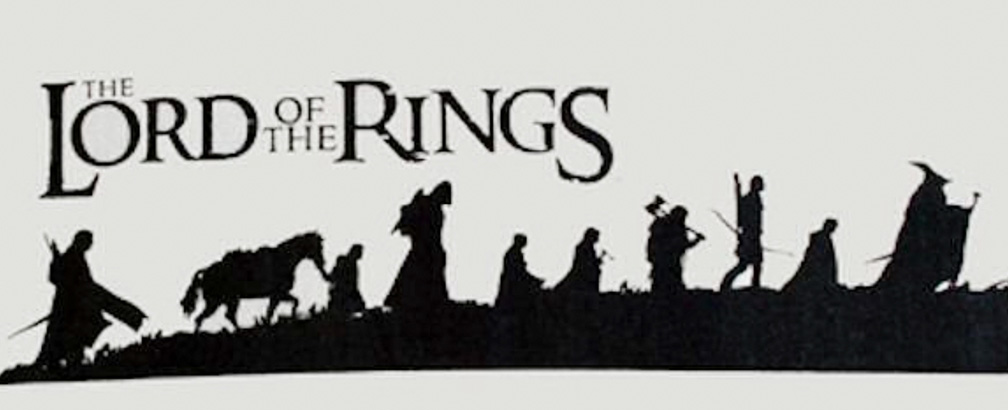Twenty years ago, Peter Jackson’s “The Fellowship of the Ring” debuted in theaters, the first installment of a cinematic masterpiece that retells the story of J.R.R. Tolkien’s beloved “The Lord of the Rings” trilogy. This fantasy epic is filled to the brim with wholesome themes, storylines and characters that portray valuable lessons to the attentive viewer.
One of the film’s characters who boasts much depth and complexity is Boromir, son of Denethor the Steward of Gondor. Boromir is first introduced midway through the film arriving at the Council of Elrond, where the leaders of Middle Earth decide what to do with the One Ring of Power (which the Dark Lord Sauron could use to take over the world). We see Boromir as a confident, strong-willed and patriotic individual.
Despite his outward bravado, he is crippled by the constant pressure from his father to be the savior of his people. Later in the movie, Boromir expresses his inner chaos to Aragorn in the woods of Lothlorien, giving us a glimpse into the burden he carries.
“It is long since (Gondor) had any hope. My father is a noble man, but his rule is failing, and now our people lose faith. He looks to me to make things right and I would do it. I would see the glory of Gondor restored,” Boromir said.
Boromir’s overbearing father combined with the pressure of repelling an ever-present enemy creates a tumultuous chaos within his spirit. That is why Boromir earnestly pleads with the Council to bequeath the Ring to him, to wield the most powerful weapon in the world against the one who created it.
But what he fails to realize is that the Ring erodes the spirit of whomever bears it (except for Sauron) and drives him or her insane with an evil desire for it. When the Council decides to destroy the Ring instead, the temptation of the Ring begins to enslave Boromir’s mind.
Boromir journeys with eight other companions from the Council to carry out the quest and destroy the Ring: four hobbits – Samwise, Merry, Pippin and Frodo (who would ultimately carry the Ring into Mordor to destroy it); Gandalf the Grey, Aragorn the long-lost King of Gondor, Legolas the Elf and Gimli the Dwarf.
The company encounters many enemies along the way. But the real danger the group faces is from within; hopelessness and greed take over Boromir as the quest lengthens.
At last, Boromir can no longer resist the Ring’s power, and he attempts to steal it from Frodo in the woods. But immediately after Frodo escapes, Boromir realized he almost endangered everyone and is gripped with remorse.
Boromir’s internal struggle is one that several Christians face daily. We all have desires that God places within our hearts: finding relational intimacy, a way to provide for our families or any number of things. But if we pursue them in dishonest or godless ways, we fall into sin. C.S. Lewis eloquently stated that “wickedness, when you examine it, turns out to be the pursuit of goodness in the wrong way.”
While Boromir’s desire to save Gondor was good, his methods nearly led him to ruin.
Fortunately, for both Christians and Boromir, we are given second chances to put aside our evil ways and pursue a life of selfless service.
Boromir gets a chance at redemption, and he makes the most of it. Once he is free from the Ring’s power, he comes to the rescue of Merry and Pippin just as their enemies attack, in perhaps the most noble display of bravery, sacrifice and loyalty in the entire trilogy.
Every time I watch this scene and see Boromir charging to the hobbits’ aid, my heart swells with admiration and tears reach my eyes as I see the powerful redemption story unfold.
Sadly, this one-man stand was Boromir’s last great deed. He is shot three times during the skirmish, but even after sustaining the fatal injuries, Gondor’s finest soldier fights with every ounce of strength he has left. As Merry and Pippin are taken, Boromir dies in the arms of Aragorn, who arrives only moments too late.
Boromir’s repentance from his evil ways and the reckless abandon he displays when he sees his friends in need is inspiring. In the Christian life, the power that God’s forgiveness of our sins can have a major effect on our lives if we turn to him wholeheartedly.
1 John 1:9 NIV says, “If we confess our sins, he is faithful and just and will forgive us our sins and purify us from all unrighteousness.”
Hopefully, those who watch this all-time classic movie will resonate with this beautiful redemption story and be reminded that Christ’s forgiveness can turn us into people who display the same courage and passion for God’s Kingdom as Boromir did for his friends.
John Simmons is the Web Manager. Follow him on Twitter at @JohnSimmonsJr7.
